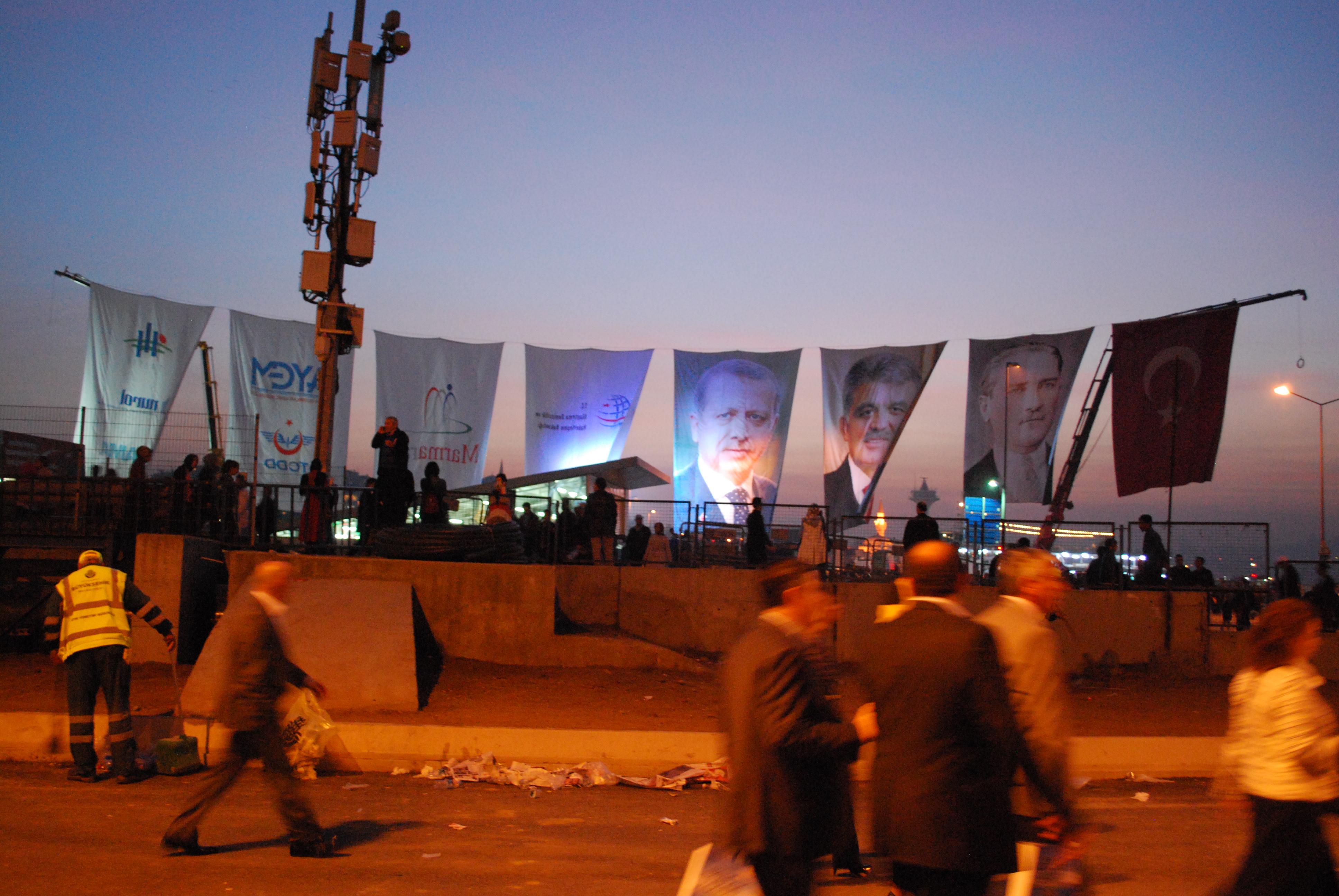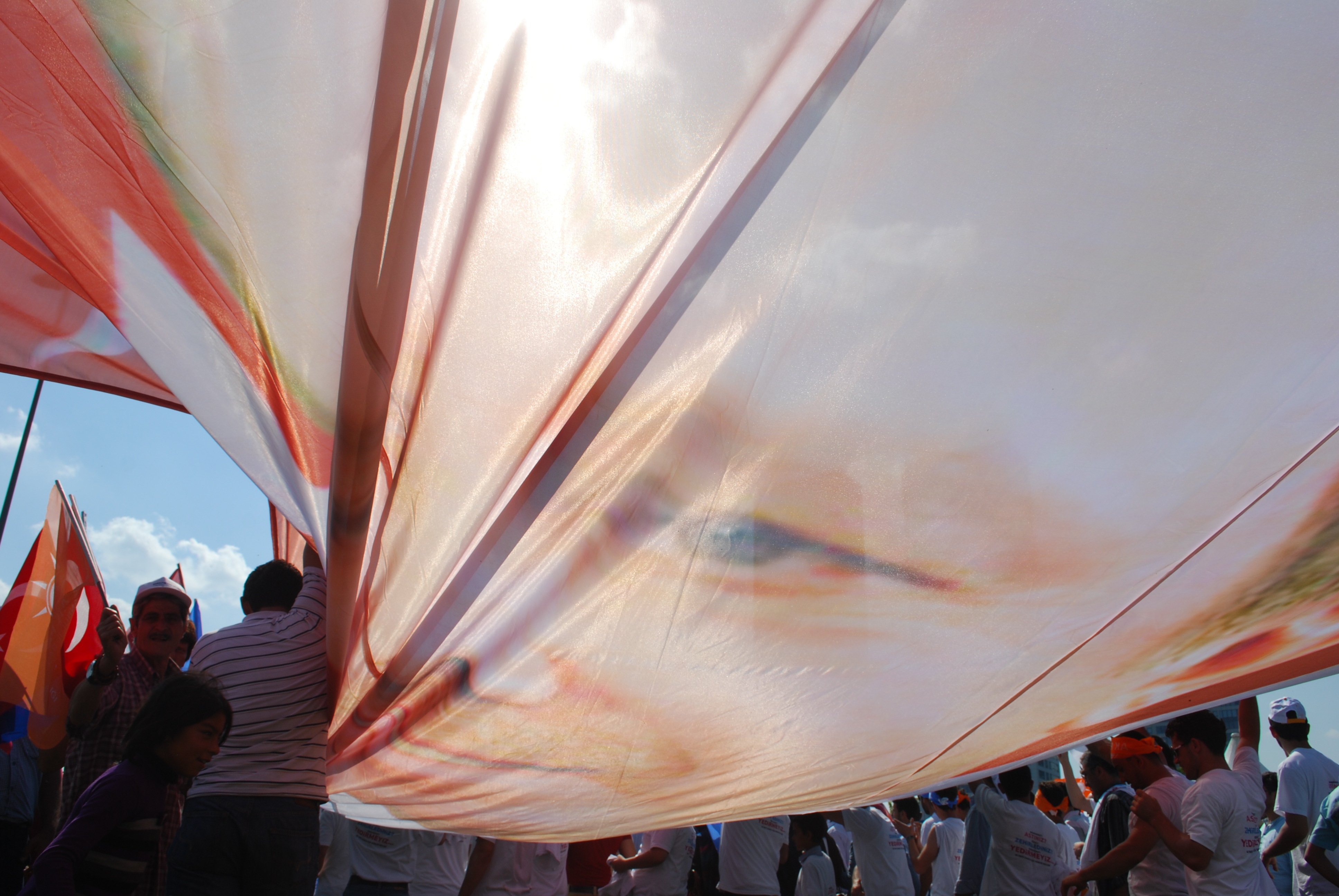
On Tuesday afternoon an explosion tore through a coal mine in Soma, Turkey, as more than seven hundred workers prepared for a shift change. The subsequent fire cut off electricity to the mine, trapping hundreds of miners about a mile beneath the surface. By evening, the official death toll was over two hundred, and Taner Yıldız, Turkey's energy minister, told reporters on Wednesday that he was losing hope that more survivors could be found. Panicked and grieving families gathered around the mouth of the mine to watch the removal of bodies. One photo from Soma, which is about two hundred miles south of Istanbul, showed a truck delivering supplies from a nearby town, including a precariously stacked pyramid of mismatched wooden coffins.
According to Yıldız, the workers died of smoke inhalation, even as rescue workers pumped oxygen into the mine. Prime Minister Recep Tayyip Erdoğan, who cancelled an overseas trip so that he could travel to Soma, assured the press that there would be a full investigation. He declared an official three-day mourning period. Sports matches were cancelled.
In a statement, Soma Holding, the company that owns the mine, insisted that they had complied with safety regulations, but the more pressing question was about the regulations themselves—and the government that has overseen them. With the death toll now approaching three hundred, the incident is the worst mining disaster in Turkish history. But there have been at least thirteen "major" mining accidents in Turkey since 1983, most due to methane explosions. Last year, a reported thirteen thousand miners suffered workplace accidents. Prior to Tuesday, the largest such incident, a gas explosion in 1992, took two hundred and sixty-three lives.
Coal is Turkey's most exploited indigenous source of energy. Since Erdoğan's Justice and Development Party (A.K.P.) first came into power, in 2002, it has been a cornerstone of their breakneck development. Umud Dalgıç, a sociologist with the Heinrich Boll Foundation, in Istanbul, said that the government sees coal as "essential for the growth of the country." Coal, he argued, has come to symbolize the A.K.P.'s relationship with "average" Turks—whether that be miners who have found jobs in places like Soma and Kozlu, or poorer citizens who need cheap fuel to heat their homes. Working-class voters, like the miners, are essential to the popularity of Erdoğan and the A.K.P. During campaigns, Dalgıç added, some A.K.P. politicians have been known to hand out coal to the party's supporters, along with food staples.
The cause of the explosion is not yet known, and mining for coal is, in any country, a dangerous and controversial undertaking. In the past, A.K.P. officials have brushed off coal accidents as an unfortunate but inherent part of an industry that, on the whole, is vital to a still developing Turkey. In 2010, Erdoğan referred to such accidents as "destiny." Visiting the site this week, he recognized the tragedy—but he also came to his government's defense. "Explosions like this in these mines happen all the time," the prime minister said. "It's not like these don't happen elsewhere in the world." The quote, repeated throughout the media, may have become Erdoğan's Soma soundbite.
The A.K.P. has previously been criticized for its lack of attention to earthquake preparedness, even when it claimed to be making it a priority following a massive earthquake in 1999. Coal accidents seem to be another symptom of their carelessness. Safety regulations have not kept pace with the mining. Charlie Ozuturk, the communications officer for Greenpeace in Istanbul and the region, said that a disaster on the scale of Soma could have been avoided. "Today is an ongoing tragedy that's been taking place in Turkey for the past thirty years," Ozuturk told me. "The difference here lies in the maintenance inspections that were supposed to take place. With proper safety protocol, these sorts of accidents shouldn't be happening."
Erdoğan and the A.K.P. have, of late, weathered many political firestorms, including mass protests and corruption accusations, to come out on top in local elections. But the Soma disaster is already being painted along political lines, and not in the A.K.P.'s favor. On Wednesday, Erdoğan shuffled through a jeering crowd into a Soma market, amid loud shouts of "Prime Minister, resign." He looked irritated by the demonstration, and he wasn't the only A.K.P. official to feel that way—widely circulated photos appear to show Yusuf Yerkel, one of Erdoğan's advisers, kicking a fallen protester.
"We will not refer to it as an accident, we will call what happened a massacre," a parliamentary adviser with the Republican People's Party (C.H.P.), the A.K.P.'s closest rival, told me. According to C.H.P. officials, party members had proposed investigations into deaths at Turkey's coal mines only weeks earlier, which the A.K.P. had rejected. "We are a hundred per cent sure that the M.P.s who voted against the legislation haven't even read it," the C.H.P. advisor said. The denial was "nothing short of shocking," according to an Amnesty International statement, published on Wednesday. "They are playing with people's lives."
This seemed to confirm what opponents of the A.K.P. already believed—that the government would take measures to help businesses develop Turkey, even at the expense of Turkish citizens. "Everything is done to attract private owners," Özgür Gürbüz, a leading expert on renewable energy in Turkey, said. "A year ago they changed a law to make privatization of coal power plants easier," he continued. "They gave an exemption to coal power plants. Everything is designed for coal in Turkey."
When some of the rescued miners spoke to the press, they were blunt about their rationale for doing such dangerous work: they felt there was little choice, even though one miner claimed he had never witnessed a single safety inspection. Interviews with family members convey lives wracked with worry. Mining creates jobs—the workers are reportedly paid about five hundred dollars each month—but it often eliminates the possibility of other labor, like farming, in the vicinity of the mine. Ali Ergin Demirhan, a labor-rights activist, argued that the government had failed to protect the miners. "They support the subcontractors and the private mines," he said. Unions, Demirhan told me, either operated at the behest of the government or have very little actual power—membership is below six per cent. "The working class doesn't have the power to protect itself against the corporations," he said.
In Istanbul, protesters gathered in front of the offices of Soma Holding, and on Wednesday night, large crowds flocked to Taksim Square, animated by the same discontent that fuelled last summer's protests in Gezi Park—anger at rapid development, at corruption in the government's dealings with corporations, and at its apparent disregard for the well-being of Turkish citizens. But Istanbul can often feel far removed from the rest of the country, and even larger tragedies, like the earthquake that struck eastern Turkey in 2011, may quickly fade from memory here. With a few months remaining before presidential elections, the A.K.P. will be hoping that this disaster is quickly forgotten.
"Today, I can see people asking, 'Why do we need coal?'" said Gürbüz, the renewable-energy expert. "But the main problem—and this isn't only for Turkey—is the relationship between electricity and the way it's generated. Everybody's angry when they see pictures of nature being destroyed, but they don't see the correlation, the relationship between the electricity they consume in their houses and coal mines. This is not just in Turkey, this is everywhere."




